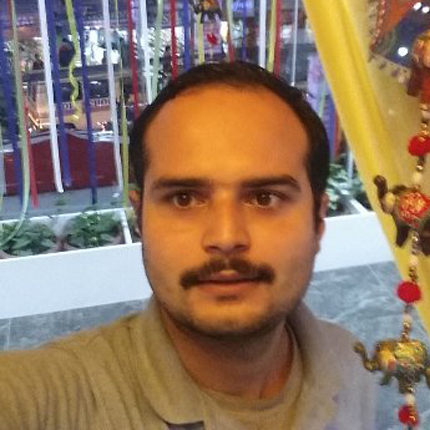Opinion
New political nexus
The old Nepali focal point was Varanasi, the new one is spread across Washington, Brussels and London
Saurav Raj Pant
The Election Observation Mission Report (EOM) released by the European Union (EU) last March became the ‘boiling pot’ among the Kathmandu ruling circle. The EU’s observations about the House of Representatives and Provincial Assembly elections sparked a polarised debate amid accusations of an interventionist approach. A polarised debate seemsto be quite relevant when Nepal received grants totalling $29.48 million from the EU from 2015-17, as reported by the Ministry of Finance.
Fuelling change
This incident shows that Nepal is entering a new political nexus. Nexus refers to the focal or central point. The old Nepali political nexus was Varanasi. The new political nexuses are Washington, Brussels and London. The old political nexus was the result of the Rana regime which seriously undermined public education. This led interested members of the public (mostly affluent so-called high caste men) to go to Varanasi for higher studies.
The new political nexus is the result of an unstable government. There have been 26 government changes in the past 27 years. The instability forced many young people to go abroad, especially to the West for higher studies. Varanasi was the political nexus for youths like BP Koirala and Krishna Prasad Bhattarai who started a revolt against the Rana regime in Nepal. Koirala, the first democratically elected prime minister and the most charismatic leader of all time, was born in Varanasi after his father was exiled to India. Varanasi was the political and intellectual nexus for many Nepali youths till 1990.
The India-brokered Delhi Accord which was signed in 1951 between king Tribhuvan, the Ranas and the Nepali Congress marked the official start of India’s indirect leverage in Nepal. The intellectual, political and logistical settings of the 1951 revolution in Nepal was prepared in India, primarily in Varanasi. These benefits provided by the Indian establishment provided leverage over Nepal. Due to weaknesses in advancing our national interest, this leverage has existed in Nepal for the past 65 years. Today, many affluent Nepali youths are in the new political nexus.
Many young Nepali intellectuals are already starting polarised debates on issues concerning Nepal by staying in this new political nexus. Such polarisation can be seen in the recent incident of the EU report. There were 11,000 Nepali students in the US in 2017, making Nepal the 25th largest student sending country. As the US is known for inclusive and competitive governance, many Nepali students feel the gap between the government structures in Nepal and the US. Many young intellectuals residing in the new political nexus are starting to influence the Nepali establishment by writing op-eds in the national dailies of Nepal.
This also raises the risk of the ‘deep state’ system where influential intellectuals entrenched inside the government penetrate policy lobbies in Nepal, leading democratically elected officials to be mere figureheads. Several issues related to federalism, secularism and foreign policy force us to think whether Nepal is slowing falling into the trap of deep state. Many reports suggest that Nepal is developing as the ‘cockpit’ of a geo-strategic Great Game. Today, war and conflict need not be done on the frontline. Proxy, propaganda and cyber hacking can be done without entering the target country. Nepal should learn from Estonia about how it became able to fight any proxy and cyber hacking.
Surviving the future
Nepalis should understand that it is the norm in international politics for every country to try to promote its national interest. The West has a unique style of promoting its national interest in the developing world through aid diplomacy. Nepal should also develop a unique framework to receive the aid provided by the Western powers. The recent EU report is the result of the government’s policy of only receiving aid but not strengthening its negotiating power. In every crisis, there is an opportunity. So Nepal should learn from the EU report and sharpen its strength by developing the ‘reservation area’.
Young Nepali intellectuals should also be aware of this and determine to what extent criticism is necessary for the country, including what should be exposed and what should be hidden globally. Divided intellectuals will prove suicidal for the country. Centre-left intellectuals, leftist intellectuals, identity leaning intellectuals, US-based intellectuals and mentionable young intellectuals have divided the approach in understanding Nepal. These divisions are felt with regard to identity, political ideology and legitimacy of foreign engagement. Intellectuals in the new political nexus aren’t bad, but ultimately one should know the ‘organic’ way to think for Nepal.
Nepal is transforming very fast. Idea, innovation and inspiration (3Is) are coming from the new political nexus. But the 3Is should be organic, and then only will we survive in this global assimilation and diffusion process. The old political nexus has taught us many things: How extra-engagement set the streets on fire in this fledgling democracy. We are paying the price till now. Lack of organic thinking for Nepal by young intellectual makes the new political nexus powerful, resulting in the rise of ‘deep state’ in Nepal. A similar thing happened in the old political nexus where BP Koirala was the only person who was able to think organically for Nepal. If these types of scenarios aren’t corrected timely, such types of reports will be normal in the days to come.
Pant is a development consultant




 11.12°C Kathmandu
11.12°C Kathmandu










